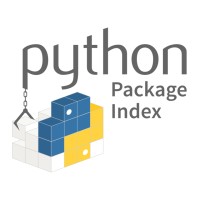
PyPI
The Python Package Index (PyPI) is a repository of software for the Python programming language



The Python Package Index (PyPI) is a repository of software for the Python programming language

Juniper Networks is leading the revolution in networking, making it one of the most exciting technology companies in Silicon Valley today. Since being founded by Pradeep Sindhu, Dennis Ferguson, and Bjorn Liencres nearly 20 years ago, Juniper’s sole mission has been to create innovative products and solutions that meet the growing demands of the connected world. Juniper Networks is headquartered in Sunnyvale, California, with over 9,000 employees in 50 countries and nearly $5 billion in revenue. Our customers include the top 100 global service providers and 30,000 enterprises, including the Global Fortune 100 as well as hundreds of federal, state and local government agencies and higher educational organizations. At Juniper Networks, we believe the network is the single greatest vehicle for knowledge, understanding, and human advancement that the world has ever known. Now more than ever, the world needs network innovation to connect ideas and unleash our full potential. Juniper is taking a new approach to the network — one that is intelligent, agile, secure and open to any vendor and any network environment. To learn more about Juniper, our products, and our vision for the decade ahead, visit our site at https://www.juniper.net. Acquired by Hewlett Packard Enterprise in 2025.
Security & Compliance Standards Overview












No incidents recorded for PyPI in 2025.
Juniper Networks has 127.27% more incidents than the average of same-industry companies with at least one recorded incident.
PyPI cyber incidents detection timeline including parent company and subsidiaries
Juniper Networks cyber incidents detection timeline including parent company and subsidiaries
Last 3 Security & Risk Events by Company
ThingsBoard in versions prior to v4.2.1 allows an authenticated user to upload malicious SVG images via the "Image Gallery", leading to a Stored Cross-Site Scripting (XSS) vulnerability. The exploit can be triggered when any user accesses the public API endpoint of the malicious SVG images, or if the malicious images are embedded in an `iframe` element, during a widget creation, deployed to any page of the platform (e.g., dashboards), and accessed during normal operations. The vulnerability resides in the `ImageController`, which fails to restrict the execution of JavaScript code when an image is loaded by the user's browser. This vulnerability can lead to the execution of malicious code in the context of other users' sessions, potentially compromising their accounts and allowing unauthorized actions.
Mattermost versions 11.0.x <= 11.0.2, 10.12.x <= 10.12.1, 10.11.x <= 10.11.4, 10.5.x <= 10.5.12 fail to to verify that the token used during the code exchange originates from the same authentication flow, which allows an authenticated user to perform account takeover via a specially crafted email address used when switching authentication methods and sending a request to the /users/login/sso/code-exchange endpoint. The vulnerability requires ExperimentalEnableAuthenticationTransfer to be enabled (default: enabled) and RequireEmailVerification to be disabled (default: disabled).
Mattermost versions 11.0.x <= 11.0.2, 10.12.x <= 10.12.1, 10.11.x <= 10.11.4, 10.5.x <= 10.5.12 fail to sanitize team email addresses to be visible only to Team Admins, which allows any authenticated user to view team email addresses via the GET /api/v4/channels/{channel_id}/common_teams endpoint
Exposure of email service credentials to users without administrative rights in Devolutions Server.This issue affects Devolutions Server: before 2025.2.21, before 2025.3.9.
Exposure of credentials in unintended requests in Devolutions Server.This issue affects Server: through 2025.2.20, through 2025.3.8.